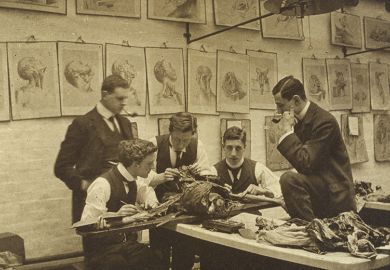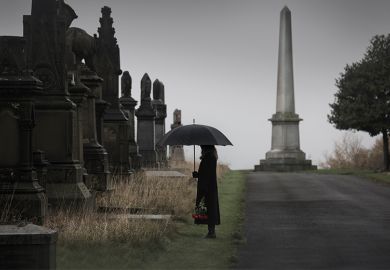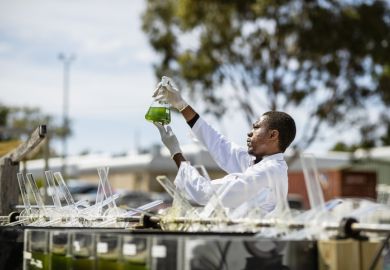The University of California, Berkeley has apologised for still holding the remains of thousands of indigenous people – in the largest such case in the US – despite years of promises to rectify the situation.
Berkeley issued the apology after an extensive investigation by ProPublica and NBC News detailed a century of the institution’s work in excavating indigenous burial grounds and using the bones to teach its anthropology students.
The federal government ordered an end to such practices more than three decades ago, yet the investigation found that Berkeley has been slow to comply and still held the remains of some 9,000 indigenous people in its Phoebe A. Hearst Museum of Anthropology – more than any other US institution covered by the government order.
A Berkeley spokesman initially responded to the published investigation by briefly saying over the past weekend that the report had “some errors and omissions”. In another statement three days later, however, the spokesman called the reporting accurate and said it “raised legitimate questions and concerns about the status of the university’s current practices, as well as its commitment to the full repatriation of those ancestral remains and sacred objects to the tribes from which they were taken.
“The campus acknowledges and apologises for the wrongs committed by the University of California, Berkeley against native American people, particularly in regard to how the university has, historically, mishandled its repatriation responsibilities,” the university said.
“We realise that the university’s failures to repatriate ancestral remains and sacred objects in a timely manner has been both highly disrespectful and harmful to native American peoples and native nations. We are currently engaged in a broad range of efforts to expedite the repatriation process, and improve the campus’ relationship with indigenous tribes after years of inexcusable neglect.”
The ProPublica-NBC investigation tied much of the behaviour in recent decades to Tim White, a now-retired professor of integrative biology known for heading the team that discovered a 4.4-million-year-old likely human ancestor known as Ardi. The report said that Berkeley had relied on Professor White in complying with the federal law, and that Professor White described himself as having strictly followed the law’s terms.
Berkeley, in its statement, said it has “assured tribal representatives” that Professor White has not been affiliated with its department of anthropology since 1994 and has not had any role in the university’s repatriation of remains since 2018.
In 2019, the Berkeley chancellor, Carol Christ, ordered an end to all research and teaching with native American ancestral remains, the university said. “At the same time, Chancellor Christ has made repatriation a top priority and has committed the necessary funding and resources to the effort,” it said.
The university said it has “repatriated approximately 1,000 ancestors and thousands of sacred and archaeological objects” since 2020. “To provide context,” it added, “that is basically equivalent to the number of repatriations the campus completed in the preceding 30 years.”
Register to continue
Why register?
- Registration is free and only takes a moment
- Once registered, you can read 3 articles a month
- Sign up for our newsletter
Subscribe
Or subscribe for unlimited access to:
- Unlimited access to news, views, insights & reviews
- Digital editions
- Digital access to THE’s university and college rankings analysis
Already registered or a current subscriber?








